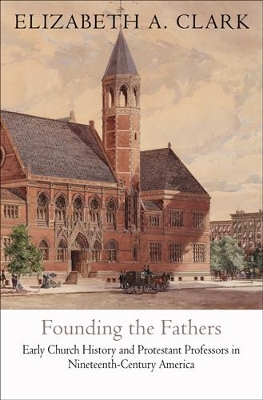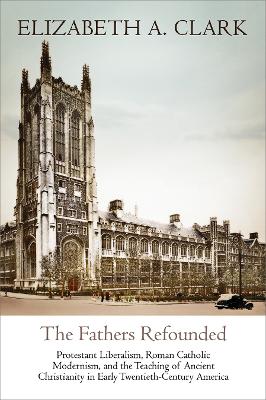Divinations: Rereading Late Ancient Religion
2 total works
Through their teaching of early Christian history and theology, Elizabeth A. Clark contends, Princeton Theological Seminary, Harvard Divinity School, Yale Divinity School, and Union Theological Seminary functioned as America's closest equivalents to graduate schools in the humanities during the nineteenth century. These four Protestant institutions, founded to train clergy, later became the cradles for the nonsectarian study of religion at secular colleges and universities. Clark, one of the world's most eminent scholars of early Christianity, explores this development in Founding the Fathers: Early Church History and Protestant Professors in Nineteenth-Century America.
Based on voluminous archival materials, the book charts how American theologians traveled to Europe to study in Germany and confronted intellectual currents that were invigorating but potentially threatening to their faith. The Union and Yale professors in particular struggled to tame German biblical and philosophical criticism to fit American evangelical convictions. German models that encouraged a positive view of early and medieval Christianity collided with Protestant assumptions that the church had declined grievously between the Apostolic and Reformation eras. Trying to reconcile these views, the Americans came to offer some counterbalance to traditional Protestant hostility both to contemporary Roman Catholicism and to those historical periods that had been perceived as Catholic, especially the patristic era.
In the early twentieth century, a new generation of liberal professors sought to prove Christianity's compatibility with contemporary currents in the study of philosophy, science, history, and democracy. These modernizing professors—Arthur Cushman McGiffert at Union Theological Seminary, George LaPiana at Harvard Divinity School, and Shirley Jackson Case at the University of Chicago Divinity School—hoped to equip their students with a revisionary version of early Christianity that was embedded in its social, historical, and intellectual settings. In The Fathers Refounded, Elizabeth A. Clark provides the first critical analysis of these figures' lives, scholarship, and lasting contributions to the study of Christianity.
The Fathers Refounded continues the exploration of Christian intellectual revision begun by Clark in Founding the Fathers: Early Church History and Protestant Professors in Nineteenth-Century America. Drawing on rigorous archival research, Clark takes the reader through the professors' published writings, their institutions, and even their classrooms—where McGiffert tailored nineteenth-century German Protestant theology to his modernist philosophies; where LaPiana, the first Catholic professor at Harvard Divinity School, devised his modernism against the tight constraints of contemporary Catholic theology; and where Case promoted reading Christianity through social-scientific aims and methods. Each, in his own way, extricated his subfield from denominationally and theologically oriented approaches and aligned it with secular historical methodologies. In so doing, this generation of scholars fundamentally altered the directions of Catholic Modernism and Protestant Liberalism and offered the promise of reconciling Christianity and modern intellectual and social culture.

